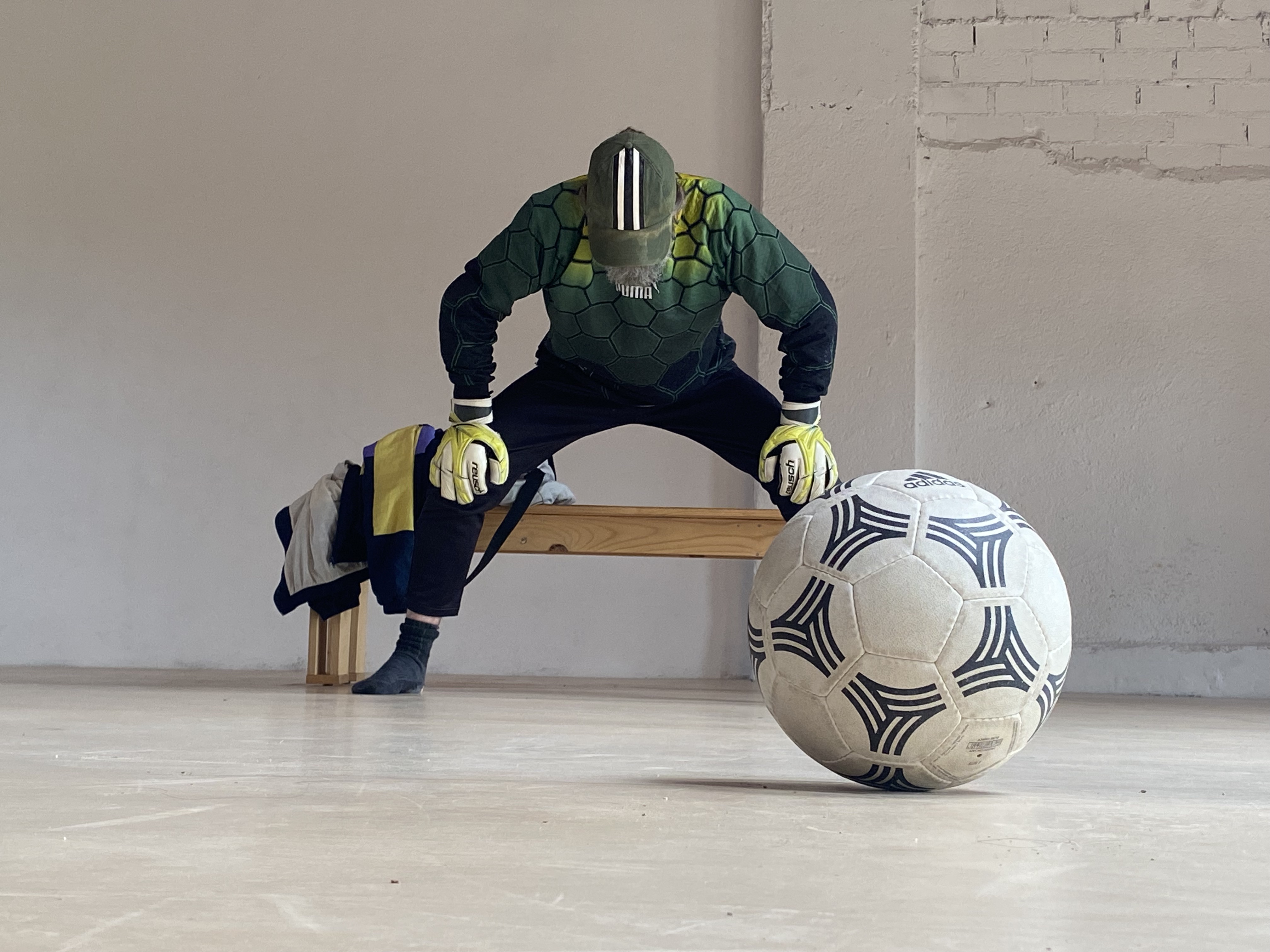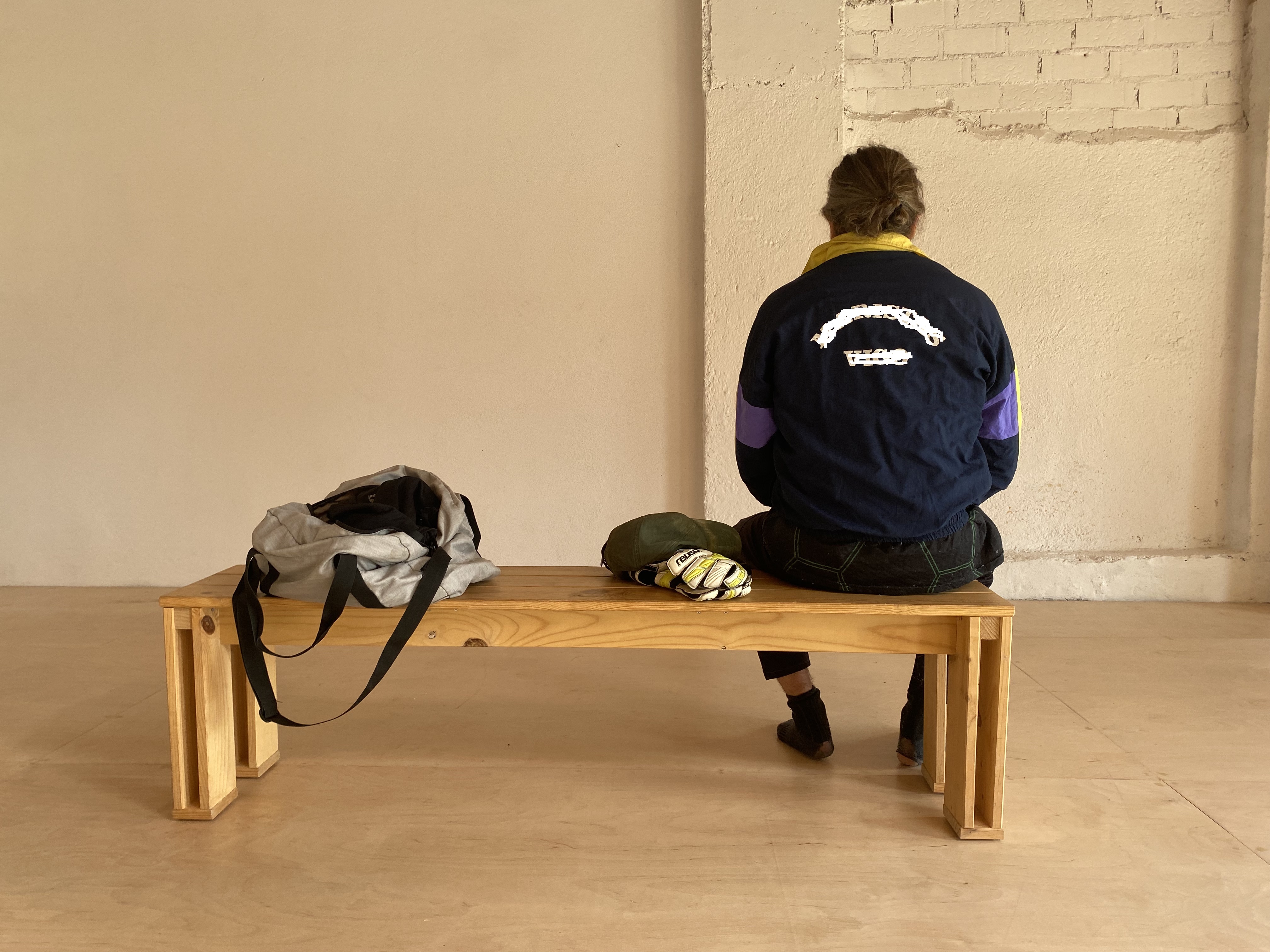THE ENCYCLOPEDIA OF PAIN.
VOLUME 1: MUM’S THE WORD.

My mother would always use the expression “Mum’s the word”. She used it for things that were not to be discussed outside our home or our family. I remember a lot of gestures, made from the authority of the family or the school, aimed at putting off desire. Gestures to make silence. Gestures to not say, to remain silent, to repress.
Gestures that, in a way or another, kept the repression of the dictatorship alive.
Then, the 31st May 2021, I see it in the paper. The gate of the school that was mine for 12 years, the cases of abuse dating from the 60s until our day. If I was there, did I live it too? What memory does my body keep of those years? What has been erased?
I try to think about school and I fail to remember any direct abuse, although I do remember a lot of strange moments, specially related to sports. I remember a year, 1994, when I was bullied (the word “bullying”, that now exists in Spanish, didn’t exist back then). I remember that many schoolmates that also suffered it left the school. I remember asking my mother to take me out of school. I remember the verbal and physical violence from teachers and between students. This work can only assume the form of a war against oneself, a war in order to remember, to shed light on a period of life in which one would only have wanted to erase the things one was living.
Thirty years have elapsed since. I still remember the scents. I still remember by heart the names of all of them, and the family names of my classmates. I still remember what we wore. Someone says to me that the only people that are mistreated at school are the ones that know mistreatment from their own home.
We were the children of families that were closed up in themselves. Children of silence, repression and dictatorship. Of a pain that is passed on generation after generation. That repression at school was only logical, it was part of the same story: all that mattered was to learn to obey in order to survive.
At school everyone has his own life, his own story of survival. At school we learnt to build an extraneous narrative, with its own rules, incapable of distinguishing between good and bad. At 16 I leave school, I break up with all of them. A while after that, my schoolmates tell me that on the last days of the term they gathered at night to throw garbage bags at the school court. One of the boys abused by the Marists in the 70s confesses that he has been urinating on the school wall for years, as a last gesture. Many of the abusers are dead, some are alive. Some of the crimes have prescribed, but the resentment and anger are boundless.

When I saw the Marists’ School of Vigo on the first page of El País, I went around the neighbourhood inquiring whether anyone had said something, whether anything had moved. The subject is not touched upon, neither in the cafeteria, nor in the bakery next door or in the supermarket, nowhere. Immediately, I thought of my mother’s expression “Mum’s the word”.
It wasn’t a single case. There where plenty of cases in the city, and the cases and the convictions are still multiplying. It is as if there was a scourge in the city, one that would touch the lives of people and destroy them from the very school. Did all the city, thousands of families and people, look away? Were all those people justifying abuse? How can a child stay defenseless for so many years?
There are some details that are the same in all the stories: it was impossible to know the real names of abusers, they would always hide behind an alias, or behind their religious names.
Those who denounced have never received support, many of them hide their faces and names because they are aware of the immense power of the Church in the small province towns in Spain. It had to be a national newspaper, El País, who named and pictured everything that had happened, but the local press only disowns it and refuses to continue the investigation. This piece exists to lend a voice to that tragedy, to study in depth the kind of academic structure that settled during Francoism and that never transitioned since. That is, this piece exists to put an end to fear and to silence.
Maybe a moment must come when a rotten city, a rotten society, has to face its truth. The moment when it is no longer possible to look away. The moment when someone asks clearly, what world was given to us, and what world are we leaving to others? What unbearable heritage are we passing on, since when? What I’m bearing one day, I won’t be able to bear anymore. What I’m bearing one day will fall on me. What I hide, one day I won’t be able to hide. That is the reason why I speak, that is the reason why this piece exists. Finally, mum won’t be the word anymore.